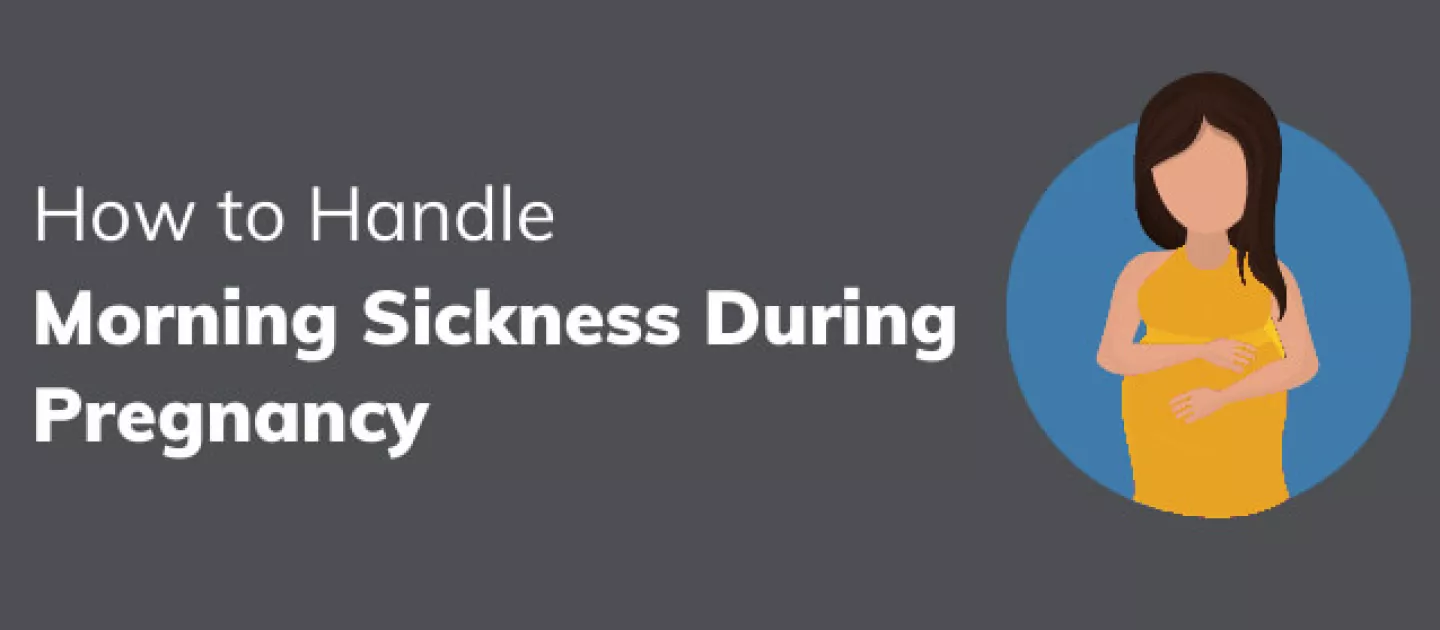Is pregnancy making you queasy? We’re talking more than just first-time parenting jitters. Pregnancy is an amazing time, but the morning sickness that may come with it might make the experience a little less than enjoyable than you would like. You’d rather pick out new baby clothes, but morning sickness has a different plan.
About 70% of moms-to-be experience nausea and or vomiting during their pregnancy, especially in the first trimester. It can be triggered by various things like odors, food that is spicy or high in sugar, tiredness, and heat. Due to its name, you would think it strikes only in the morning, but it can happen day or night. By the mid-to-late second trimester, most women will see morning sickness symptoms subside. For others, it might stick around until the end of their pregnancy. Ultimately, every woman’s experience with morning sickness is different.
What Causes Morning Sickness?
Doctors aren’t quite sure what causes morning sickness, but it’s believed that changes in hormones might affect it. There’s no real way to determine if you’ll get morning sickness, but you’re more likely to experience it if you:
- Have sensitivity to motion or taste and smell
- Have low blood sugar
- Suffer from migraines
- Have had it when pregnant before
- Take medications that increase estrogen levels
What Can You Do to Ease Morning Sickness?
While there isn’t a way to completely prevent morning sickness, you can control it. Try some of these tricks:
- Have multiple, smaller meals and snacks throughout the day to avoid an empty stomach. Blander foods will be gentler on your flip-flopping stomach.
- Drink plenty of fluids as nausea and vomiting can cause dehydration.
- Get plenty of sleep. Morning sickness, along with other pregnancy-related symptoms, can zap energy more than you think. You and your body deserve the break!
- Some over-the-counter medications can safely be used to manage morning sickness (check with your doctor first).
- Avoid triggers. Not sure what they are? Keep notes on what you’re doing, smelling, and eating when you feel ill to identify trends.
- Ginger tea is one of the oldest tricks in the book. Studies have shown that ginger is effective in treating nausea and vomiting.
- Vitamin B6 is common in helping to manage nausea symptoms.
- Use acupressure. There are bands specifically designed to wear on your arm that apply pressure on the inner part of your wrist, which may help relieve nausea.
While nothing takes the fun out of being pregnant more than morning sickness can, these tips will help you get it under control so you get back on your feet faster.
Disclaimer: PerkinElmer and ViaCord do not endorse or make recommendations with respect to research, medications or treatment. All information is provided for informational purposes only.
Resources:
March of Dimes. Morning Sickness. https://www.marchofdimes.org/pregnancy/morning-sickness.aspx
Mayo Clinic. Morning Sickness. https://www.mayoclinic.org/diseases-conditions/morning-sickness/symptoms-causes/syc-20375254#:~:text=Morning%20sickness%20is%20nausea%20and,have%20morning%20sickness%20throughout%20pregnancy.
ACOG. Morning Sickness: Nausea and Vomiting of Pregnancy. https://www.acog.org/womens-health/faqs/morning-sickness-nausea-and-vomiting-of-pregnancy
Sleep Foundation. Sleeping While Pregnant: First Trimester. https://www.sleepfoundation.org/articles/sleeping-during-1st-trimester
NCBI. The Effectiveness of Ginger in the Prevention of Nausea and Vomiting during Pregnancy and Chemotherapy. https://www.ncbi.nlm.nih.gov/pmc/articles/PMC4818021/
American Pregnancy Association. Natural Sources of Vitamin B During Pregnancy. https://americanpregnancy.org/healthy-pregnancy/pregnancy-health-wellness/natural-sources-of-vitamin-b-during-pregnancy-24422/ NCBI. P6 acupressure reduces morning sickness. https://www.ncbi.nlm.nih.gov/pmc/articles/PMC1291716/











